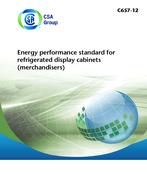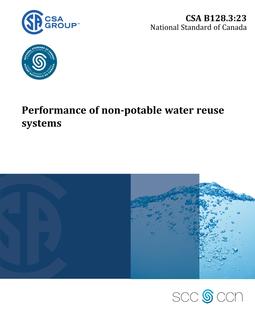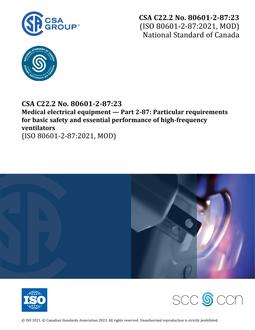
CSA C657-12
Preface
This is the third edition of CSA C657, Energy performance standard for refrigerated display cabinets (merchandisers). It supersedes the previous editions, published in 2004 under the same title, and published in 1995 under the title Energy Performance Standard for Commercial Refrigerated Display Cabinets and Merchandisers.
Scope
1.1This Standard provides definitions, classifications, and a method for determining calculated daily energy consumption (CDEC) values and specifies minimum energy efficiency requirements for refrigerated display cabinets. 1.2 This Standard applies to the refrigerated display cabinets (with or without an integral refrigerated storage cabinet) that are described in Clause 4 and intended for displaying and merchandising food products, including canned and bottled beverages, ice intended for human consumption, and other perishable merchandise (e.g., cut flowers). 1.3 This Standard applies to (a) refrigerated display cabinets (as described in Clause 1.2), except as specified in Clause 1.4, provided that the cabinets are designed to work with a remotely located, electrically driven, vapour-compression-type refrigeration system; and (b) cabinets in the shape, size, and configuration shipped from the manufacturer. 1.4 This Standard does not apply to (a) self-contained commercial refrigerated storage cabinets covered by CAN/CSA-C827; (b) refrigerated cabinets that are designed to form the front wall of a refrigerated storage room and where the air space of the cabinet is not separated from the air space of the storage room; (c) transitional cabinet fillers (referred to as “wedges” in the industry) used as corner sections between two refrigerated cabinets of similar cross-sections; (d) end cabinets; (e) combination merchandisers; (f) custom-designed refrigerated display cabinets; and (g) refrigerated vending machines covered by CAN/CSA-C804. 1.5 The values given in SI units are the units of record for the purposes of this Standard. The values given in parentheses are for information and comparison only. 1.6 In CSA standards, “shall” is used to express a requirement, i.e., a provision that the user is obliged to satisfy in order to comply with the standard; “should” is used to express a recommendation or that which is advised but not required; and “may” is used to express an option or that which is permissible within the limits of the standard. Notes accompanying clauses do not include requirements or alternative requirements; the purpose of a note accompanying a clause is to separate from the text explanatory or informative material. Notes to tables and figures are considered part of the table or figure and may be written as requirements. Annexes are designated normative (mandatory) or informative (nonmandatory) to define their application.
Product Details
- Edition:
- 3rd
- Published:
- 08/01/2012
- ISBN(s):
- 9781554919659
- Number of Pages:
- 36
- File Size:
- 1 file , 1.4 MB
- Product Code(s):
- 2422153, 2421719, 2421719


